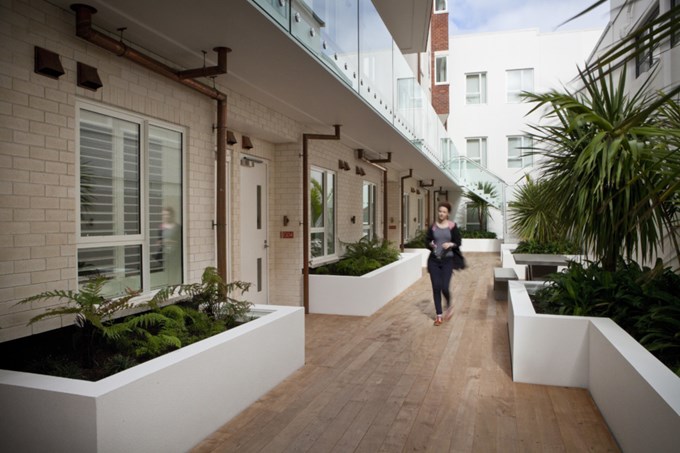Professor Philippa Howden-Chapman is the Director of He Kainga Oranga/the Housing and Health Research Programme at the University of Otago, Wellington. She spoke to OurAuckland about Auckland's housing challenges.
What’s your vision for the future of housing in Auckland? What would your top three policy moves be?
I’d like to see the whole population housed in warm, dry, safe houses, that increasingly use solar energy, and are easy to heat. Most houses that will be lived in this century have already been built. We need to keep maintaining and upgrading them to make sure that they do shelter and protect us from the rapidly changing climate.
Any new houses that are built need to be part of neighbourhoods. Kainga (homes) need to be designed so there is enough privacy and space for the families living there.
We also need to value the rich agricultural land that Auckland is built on and not cover it with concrete and bitumen.
What do you see as Auckland Council’s role in sorting the crisis?
Auckland Council has an important role, in partnership with central government, to speak out for tenants, as well as property owners. Currently, the Aucklanders who are renting are largely ignored and the council seems to consistently back down when wealthier, established ratepayers vocally resist change towards greater housing density allowing more townhouses and apartments.
Isn’t local government doing everything it can for housing? Look at the huge focus, range of programmes and initiatives.
Auckland Council has taken a welcome initiative by setting up Panuku Development Auckland to develop integrated infrastructure policies, including housing. The housing and transport policy, linked through the council’s encouragement of transit-oriented developments, is helping to lead the way to a more sustainable future where development is not car dependent and not carbon intensive.
Is lack of adequate data a problem?
There are no penalties for owners of multiple houses to leave them vacant and rely on capital gains rather than rents. We can only guess at the extent of this, because empty consented sections and empty houses are not measured.
We can only guess at the number of people who are turned away from the Citizens Advice Bureau, the Salvation Army, boarding houses and camping grounds because they are full.
We can only guess that the people begging on the streets are the tip of the iceberg of those who are in severe and growing housing deprivation, without secure, safe, uncrowded, affordable housing. These people, like most people, need secure long-term housing, not transit camp, emergency accommodation.
This is a systemic problem which only local and central governments can address.
This is part one of a two-part interview. The second part will be published on Monday 16 May.


